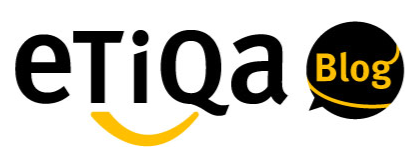How to Prioritize Financial Wellness Over Financial Wealth
Did you know a survey done in October 2019 showed that 79% of Malaysians had less than RM1,000 in savings with no room to cater for an emergency? As we move towards making healthier changes in our lives, it’s imperative that we also prioritize our finances and expand our focus to include building financial wellness instead of just on financial wealth.
Before diving in, let’s first understand what financial wellness means. Financial wellness is a large concept, made up of many areas that we can control. It includes our spending and saving habits, investments, financial literacy and income management. To exemplify the difference, building financial wealth is working to accumulate RM50,000 in cash with zero investments, bad debt and a continued desire to chase more money. Financial wellness is accumulating RM25,000 in cash in addition to having no bad debts, owning a good portfolio of investments and creating a consistent stream of income. Here’s how you can shift your focus in small, meaningful ways.

Automate Your Savings
Financial wellness starts with paying yourself on payday, not at the end of the month; think of it as part of your monthly bills and commitments. By automating your savings using the ‘standing instruction’ feature with your bank, you won’t have to think about manually putting away a portion of your income, it’ll happen automatically and your future self will thank you.
Protect Your Assets
To avoid bleeding money when unforeseen circumstances hit, protect your assets; including yourself. To do this, invest in a protection plan for yourself, your financial dependents, your home, your car, and other valuable assets. Fun fact, did you know home protection plans include personal belongings inside your home and not just the building itself? This simple step will prevent huge financial losses in the event of an emergency.

Know Where Your Ringgit Goes
Tracking spending habits can be tedious but it’s a necessity in ensuring you’re spending wisely and sticking to a budget. With a multitude of free apps like Spendee, Money Manager, Wally and Spending Tracker to name a few, there’s no excuse not to do it. However, if you can’t commit to tracking your expenses on a daily basis, a workaround would be to have a fixed budget per spending category and stick to it.

Identify Your Financial Values
Do the research and know what’s worth spending on, where to invest your money and how to manage every Ringgit you own. It’s important to remember that the content and commercials you consume on a daily basis are partially designed to have an influence on your financial decisions; someone is always selling something. Once you know what your financial values are, you’d be able to say ‘No’ where necessary and protect your money.
If you’re not already practicing these habits in your daily financial management, it’s time to get started!
The information contained in this blog is provided for informational purposes only, and should not be construed as advice on any matter. Etiqa accepts no responsibility for loss which may arise from reliance on information contained in the article. This information is correct as of the 1st of March 2021.
